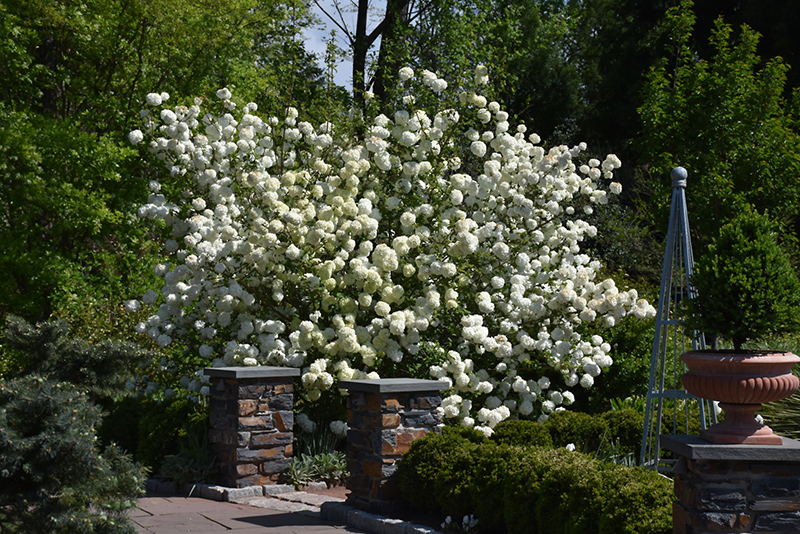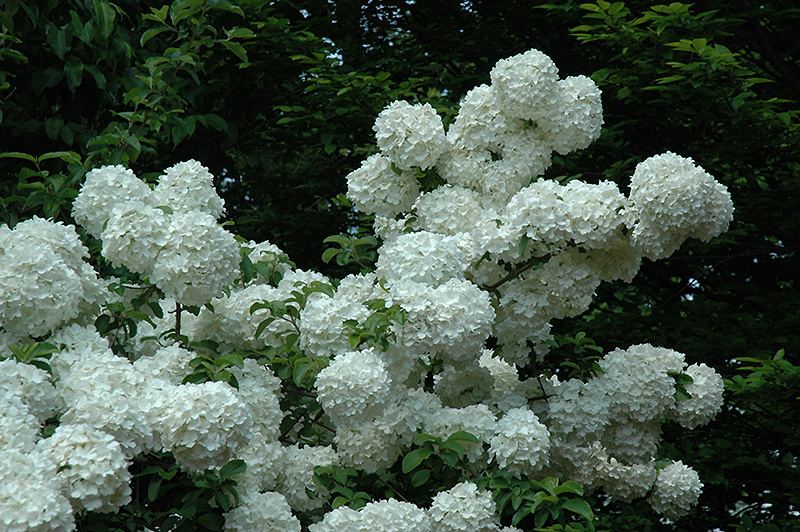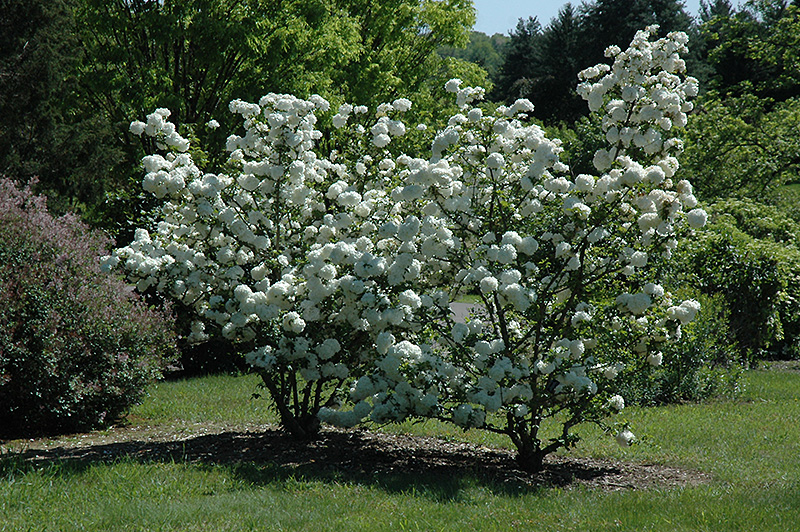Chinese Snowball Viburnum
Viburnum macrocephalum
Height: 15 feet
Spread: 12 feet
Sunlight:
![]()
![]()
Hardiness Zone: 5b
Description:
An uncommon shrub with multi-season interest; gigantic white flower clusters start out lime green, illuminating border areas; rich red-purple fall color; can grow large and leggy, cutting back older branches one third to sustain lower blooming recommended
Ornamental Features
Chinese Snowball Viburnum is draped in stunning balls of white flowers at the ends of the branches in late spring, which emerge from distinctive lime green flower buds. It has dark green deciduous foliage. The oval leaves turn an outstanding burgundy in the fall.
Landscape Attributes
Chinese Snowball Viburnum is a multi-stemmed deciduous shrub with an upright spreading habit of growth. Its relatively coarse texture can be used to stand it apart from other landscape plants with finer foliage.
This is a relatively low maintenance shrub, and should only be pruned after flowering to avoid removing any of the current season's flowers. Deer don't particularly care for this plant and will usually leave it alone in favor of tastier treats. It has no significant negative characteristics.
Chinese Snowball Viburnum is recommended for the following landscape applications;
- Accent
- Mass Planting
- Hedges/Screening
- General Garden Use
Planting & Growing
Chinese Snowball Viburnum will grow to be about 15 feet tall at maturity, with a spread of 12 feet. It tends to be a little leggy, with a typical clearance of 2 feet from the ground, and is suitable for planting under power lines. It grows at a fast rate, and under ideal conditions can be expected to live for 40 years or more.
This shrub does best in full sun to partial shade. It is very adaptable to both dry and moist locations, and should do just fine under average home landscape conditions. It may require supplemental watering during periods of drought or extended heat. It is not particular as to soil type or pH. It is highly tolerant of urban pollution and will even thrive in inner city environments. This species is not originally from North America.



